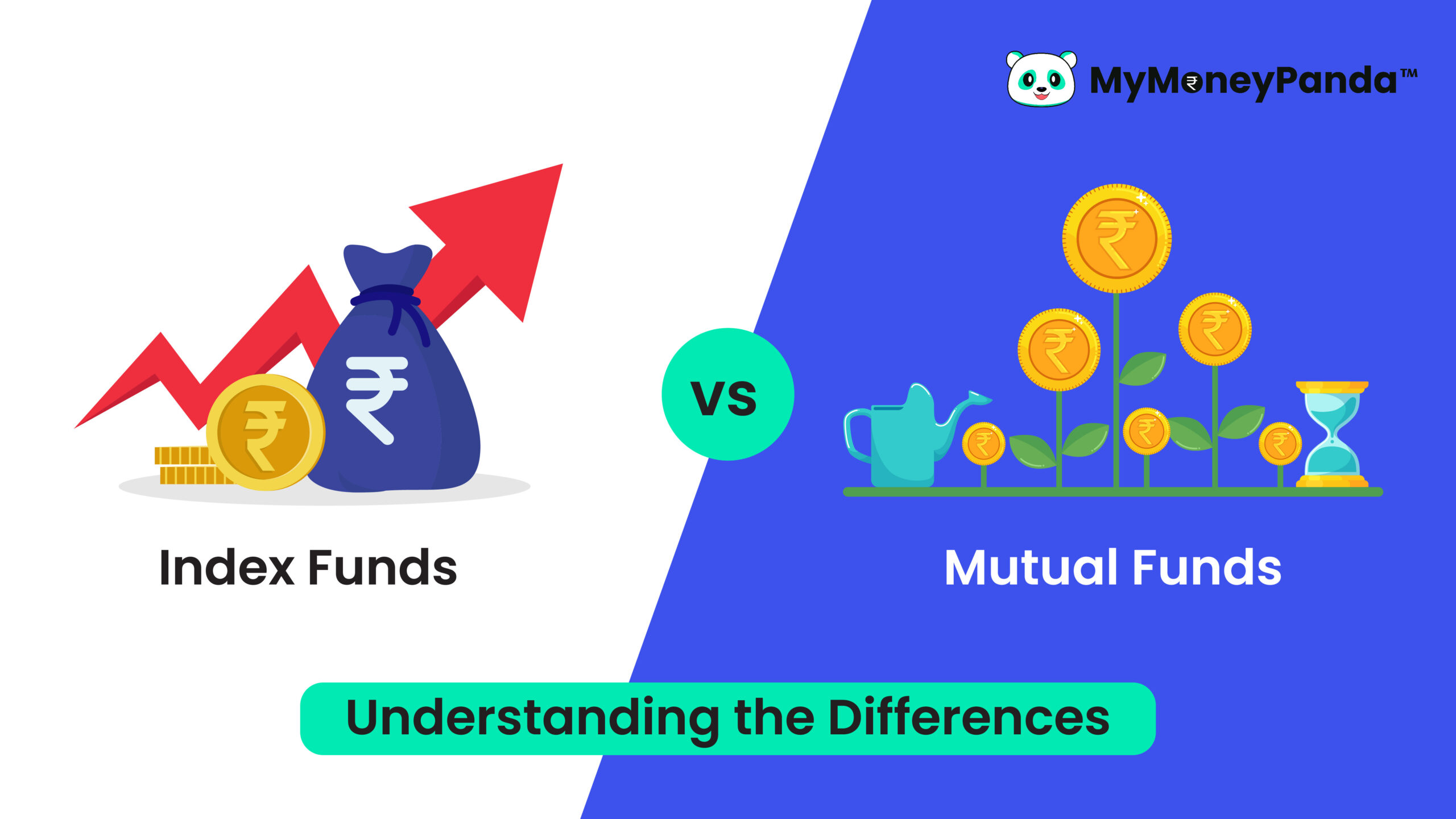Mutual funds and index funds are like team players for your money. They help you avoid the hassle of choosing individual stocks by spreading your money across different things, like companies and industries. This reduces the chance of losing all your money if one thing doesn’t do well. Even though they are similar, it’s important to know they have some important differences before deciding where to put your money.
Index Funds vs Mutual Funds
What is an Index Fund?
An index fund is not a separate investment entity but rather a form of passively-managed mutual fund specifically designed to replicate the performance of specific market indices, such as the Nifty 50 or the Sensex. Index funds in India operate by mimicking the holdings and weightings of securities within the chosen index, with the aim of closely matching the benchmark index’s performance.
These funds may encompass either all the holdings within the index or a representative subset of them. The primary goal of index funds is to mirror the returns and fluctuations of the underlying index. Many Indian investors, especially those pursuing a long-term and passive investment strategy, favor index funds due to their cost-effectiveness and consistent tracking of market benchmarks.
What is a Mutual Fund?
Active Mutual funds serve as carefully managed investment vehicles that pool resources from a multitude of investors. When an individual invests in a mutual fund, they essentially acquire a stake in the fund, granting them a proportional share of the earnings and capital gains generated.
A skilled investment manager oversees the fund’s assets, strategically distributing them across a diverse portfolio of stocks, bonds, and other securities. These professionals play a pivotal role in making informed decisions on asset allocation, buying and selling, and trading activities, with the overarching goal of maximizing returns and adaptly navigating the risks inherent in Indian investment.
Key Differences
While both index funds and mutual funds offer portfolio diversification, several notable differences should be taken into account:
Objectives: The investment objectives govern how a portfolio is managed and which assets are included. Mutual funds in many cases are actively managed by investment professionals, aiming to outperform market benchmarks. On the other hand, index funds adopt a passive approach, striving to closely match the performance of their designated index.
Costs: In the Indian context, index funds are recognized for their cost-effectiveness, mainly because of their passive investment strategy. The total expense ratio (TER) for index funds in India typically ranges from 0.20% to 0.50%. In contrast, actively managed funds often carry higher TERs, falling within the range of 1% to 2%.
The rationale behind the lower costs of index funds lies in their passive management strategy. These funds don’t require intricate decision-making by fund managers for selecting individual securities. Instead, they seek to replicate the performance of a specific market index, such as the Nifty 50 or the Sensex.
Flexibility: Mutual funds exhibit greater flexibility compared to index funds because the investment professional managing the fund can respond to market changes and adjust the fund’s holdings. In contrast, an index fund strictly invests in securities within a specific index.
Risks: Underlying risk in active mutual funds depends on the investment mandate under which the funds are operating. Risk in Index Funds depends on the underlying index that they are tracking.
Taxes
Both Active Equity Mutual Funds and Equity Index funds are subject to capital gains taxation. Capital gains are taxed as per the duration of the fund’s holding period. Taxes are applicable only upon the redemption of units. For short-term holdings of twelve months or less, a tax rate of 15% is applied. On the other hand, for long-term holdings exceeding one year, a 10% tax rate is imposed if the gains surpass Rs1,00,000. This applies to both direct equity and equity mutual funds. Additionally, a 4% cess is levied on both taxes.
Choosing between Index Funds and Mutual Funds
When choosing between index funds and mutual funds, consider key factors such as investment goals and risk tolerance. Active Mutual funds offer the potential to outperform the benchmark at higher fund management fees. Index funds replicate the index returns at lower cost.
With their professional management, active mutual funds are suitable for investors seeking higher returns than the benchmark. If seeking low-cost and diversified market exposure, index funds are preferable.
Ultimately, the decision hinges on a personalized assessment of financial objectives, time horizon, and comfort with risk. Striking a balance between performance potential and cost efficiency ensures a well-suited investment strategy aligned with individual needs.
Know How to Invest in Mutual Funds and Index Funds
FAQ’s
Are index funds or mutual funds better for long-term investors?
Mutual funds actively choose individual securities with a target to beat the index returns. Index funds replicate the index returns at low cost. Consider your investment goals and risk appetite before choosing any index fund or active mutual fund.
How do I choose between index funds and mutual funds for my portfolio?
Both index and active mutual funds come with their own benefits and costs. You should consider your investment goals, time horizon and risk appetite while selecting the right index or active mutual fund.
Can I switch between index funds and mutual funds in my portfolio?
Yes, you can switch between index funds and mutual funds in your portfolio. But switching funds would imply exit and capital gains tax implications. Hence, consider your exit and capital gains implications before switching.

Leave a Reply